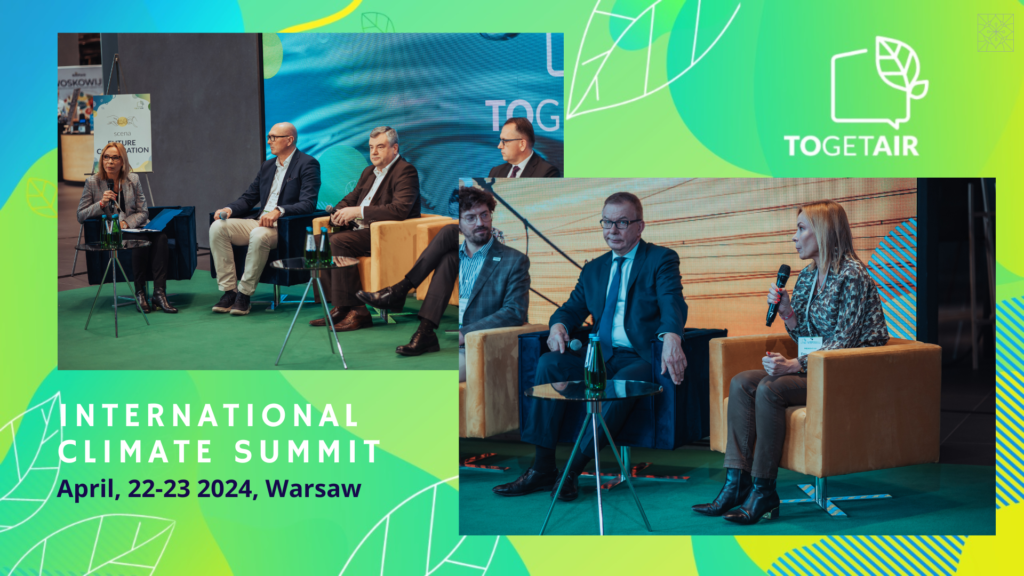The business case for circular solutions and decarbonization
The TOGETAIR International Climate Summit, which took place on 22 and 23 April, was an opportunity for many exciting meetings and discussions for all those who care about sustainable development and climate protection. The President of the Management Board, Ewa Palarczyk, represented the Synergist, who moderated the discussion panel on the first day of the Circular Economy: the philosophy of reasonable resource conservation.

Experts agree that there are many challenges ahead of us because, despite growing public awareness, our appetite for materials continues to grow as the economy grows. According to the Circularity Gap Report, in 2023, only 7.2% of the global economy is currently circular, up from 9.1% in 2018. This means that 90% of materials are wasted or unavailable.
In addition to the need for regulation and building awareness of entrepreneurs and consumers, the discussion raised the issue of the business case for circular solutions for enterprises and, thus, the economic viability of the ventures.
An important aspect for building the value of circular business models is a systemic and collaborative approach involving multiple stakeholders, often from different sectors, in terms of design and manufacturing, but also the transformation of supply chains, consumption patterns, and waste management practices.
On the second day, Ewa Palarczyk participated in a discussion panel titled “Urgent or sustainable energy transition? Climate change or security?”
As a Synergist, we believe that it is both: urgent and sustainable. Ewa developed this thesis from the perspective of companies for which decarbonization, and first the calculation of the carbon footprint in scopes 1, 2 and 3, is often the first aspect of the transformation towards sustainable development. There is a lot of talk about the costs of transformation and little about the benefits. Meanwhile, a company’s decarbonization plan is often a capital expenditure that must be incurred to achieve the expected return on investment. Decarbonisation measures frequently result in savings in operating costs due to reduced consumption or losses of electricity, heat and cooling.
Ewa pointed out that Polish entrepreneurs are currently in a difficult situation compared to European companies, as CO2 emissions per kWh of energy produced are the highest in Europe, significantly worsening their climate competitiveness. It should be remembered that GHG emissions and the application of a sustainable approach to business are already there and will be an even more critical factor in determining cooperation on the part of business partners, purchases within supply chains, investment decisions on the part of funds or everyday consumer decisions. Decarbonisation is, therefore, gaining a strategic dimension and becoming one of the elements of building a competitive advantage.
If you want to find out how Synergist can support your company in the field of circular solutions (CE) or decarbonization, please get in touch with us office@synergist.eu.com


